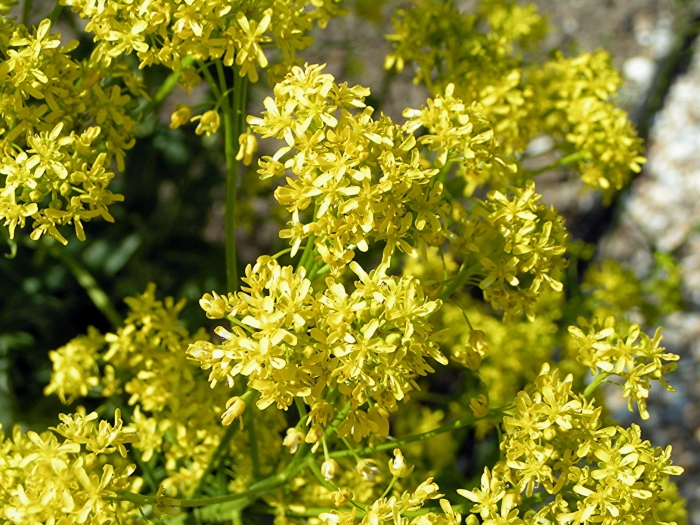Dyer’s Woad
(Isatis tinctoria)
Dyer’s Woad (Isatis tinctoria)
/
/

Pethan
CC BY-SA 3.0
Image By:
Pethan
Recorded By:
Copyright:
CC BY-SA 3.0
Copyright Notice:
Photo by: Pethan | License Type: CC BY-SA 3.0 | License URL: http://creativecommons.org/licenses/by-sa/3.0/ | Uploader: Pethan | Publisher: Wikimedia Commons | Title: Isatis_tinctoria02.JPG | Notes: ''Isopogon cuneatus'', in flower in July 2005. Canberra, Australia. Photoe taken by uploader. {{GFDL}} |


















































Estimated Native Range
Summary
Isatis tinctoria, commonly known as Dyer’s Woad, is a biennial or short-lived perennial herb that is native to the steppe and desert regions of the Eastern Mediterranean to Central Asia. It is often found in disturbed areas, fields, and open slopes. Dyer’s Woad typically reaches a height of 2-4 feet (0.6-1.2 meters) and a width of 2-3 feet (0.6-0.9 meters). It has a basal rosette of leaves during the first year and produces a tall flowering stalk in the second year. The plant is known for its clusters of small, bright yellow flowers that bloom in late spring to early summer and are moderately showy.
Dyer’s Woad is valued for its historical use as a source of blue dye, although it is not commonly cultivated in gardens. It is considered an invasive species in some regions, particularly in the western United States, where it can outcompete native vegetation. In cultivation, it requires full sun and can tolerate a range of soil types, from slow to fast drainage. It has medium water requirements but can survive in drier conditions once established. Gardeners should be cautious when planting Dyer’s Woad due to its potential to spread aggressively.CC BY-SA 4.0
Dyer’s Woad is valued for its historical use as a source of blue dye, although it is not commonly cultivated in gardens. It is considered an invasive species in some regions, particularly in the western United States, where it can outcompete native vegetation. In cultivation, it requires full sun and can tolerate a range of soil types, from slow to fast drainage. It has medium water requirements but can survive in drier conditions once established. Gardeners should be cautious when planting Dyer’s Woad due to its potential to spread aggressively.CC BY-SA 4.0
Plant Description
- Plant Type: Herb
- Height: 2-4 feet
- Width: 2-3 feet
- Growth Rate: Moderate
- Flower Color: Yellow
- Flowering Season: Summer
- Leaf Retention: Deciduous
Growth Requirements
- Sun: Full Sun
- Water: Medium
- Drainage: Slow, Medium, Fast
Common Uses
Bee Garden, Showy Flowers
Natural Habitat
Steppe and desert regions of the Eastern Mediterranean to Central Asia
Other Names
Common Names: Woad, Asp-Of-Jerusalem, Glastum, Färberwaid, Färber-Waid, Hierba Pastel, Pastel, Pastel Des Teinturiers, Teinturière, Wede
Scientific Names: , Isatis tinctoria, Isatis indigotica, Isatis tinctoria subsp. tinctoria, Isatis alpina, Isatis oblongata, Isatis canescens, Isatis praecox, Isatis oxycarpa, Isatis tinctoria var. tinctoria
GBIF Accepted Name: Isatis tinctoria L.